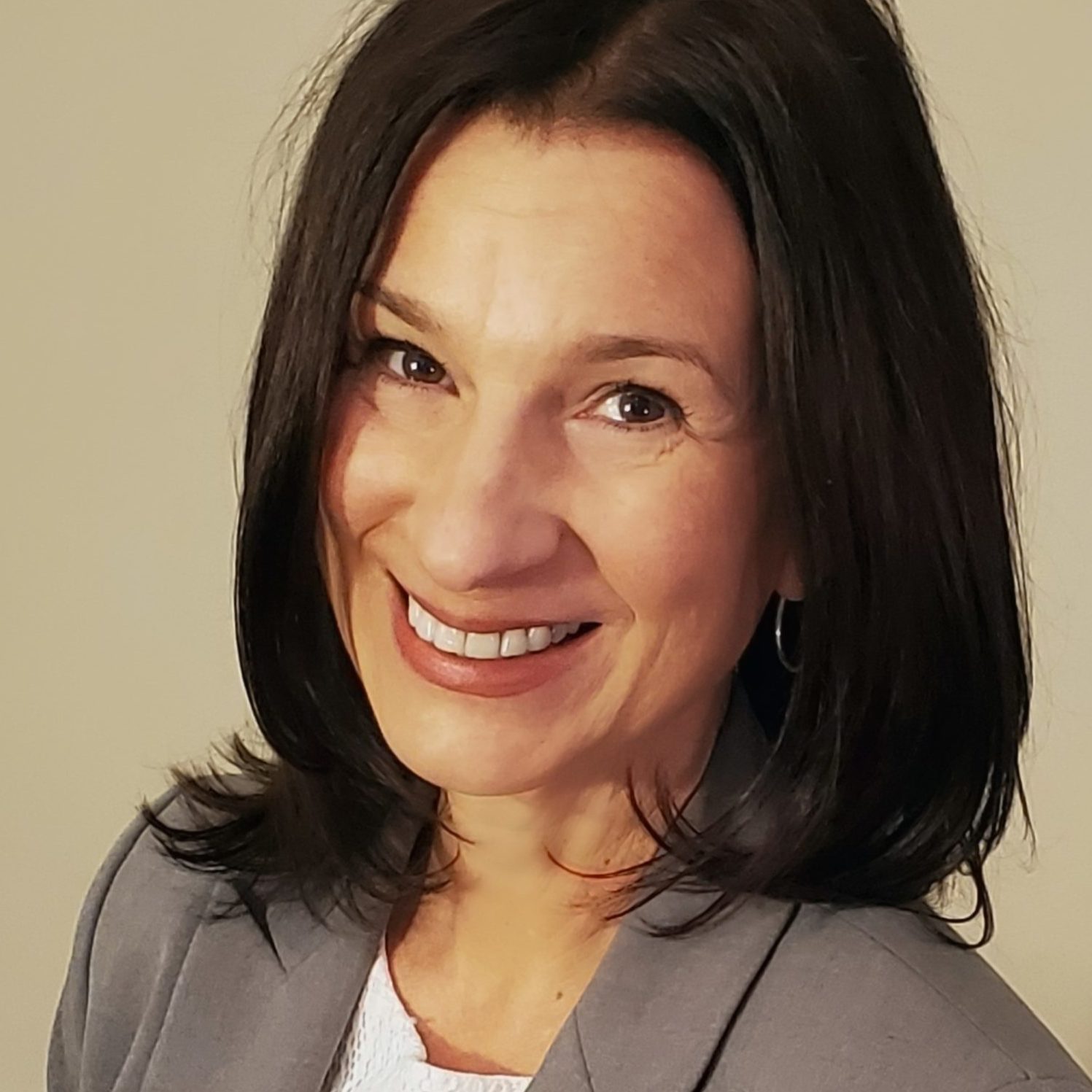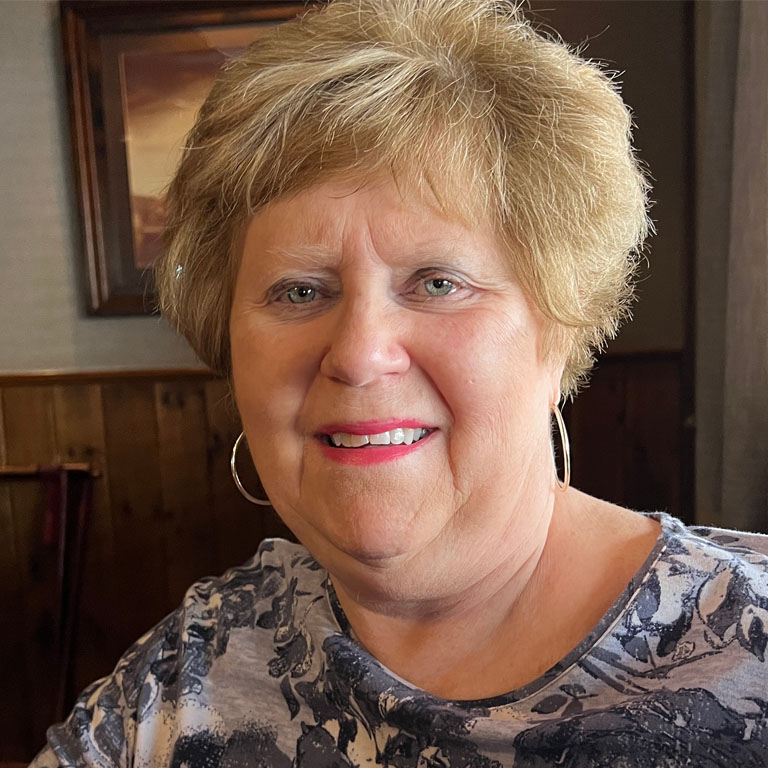“Above ground, it’s a good day”: Jeanmarie keeps perspective on MBC life
From challenging pink-tutu walks to pushing for proclamations, Jeanmarie advocates for the MBC community while living with humor and gratitude every day.
- 09/11/25
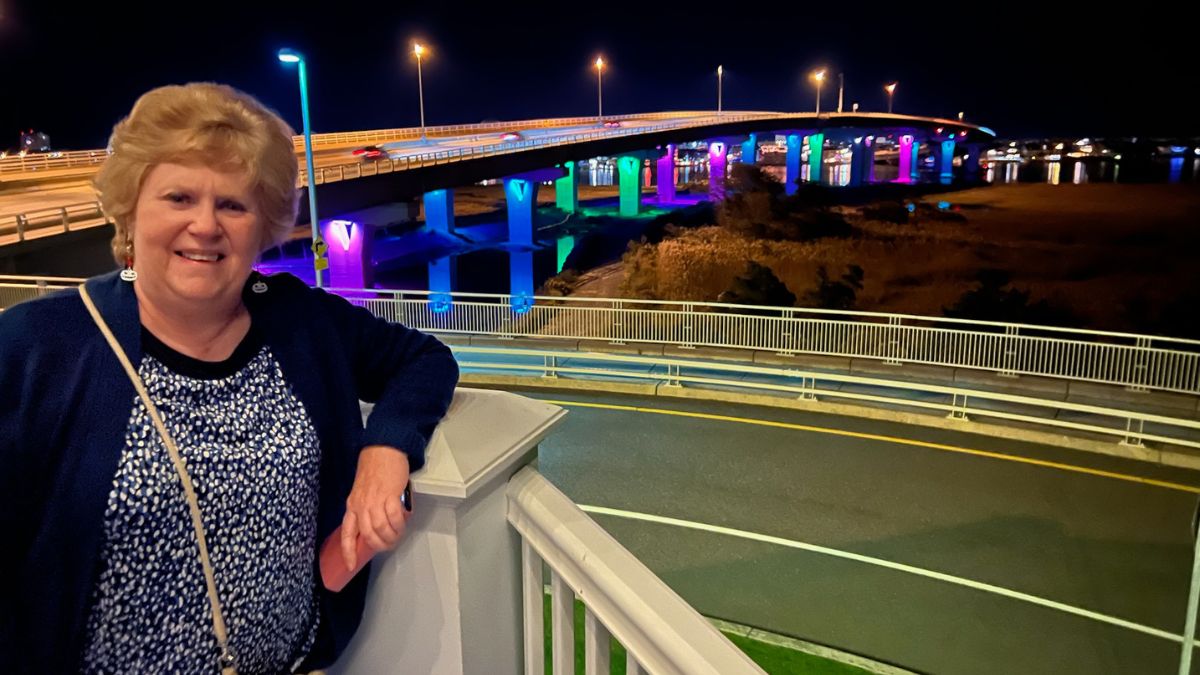
Before her breast cancer diagnosis, Jeanmarie Mason was deep into a decades-long career in education. She worked as a general and special education teacher and later became a special education administrator. Today, she continues to teach at the college level.
A self-described “Philly girl” and devoted Eagles fan, Jeanmarie is also a wife and mother of two adult children. Her son lives with a serious mental illness. Her daughter lives with cervical cancer and has complex medical needs from her cancer care. Her husband has prostate cancer. “We are now a family of cancer,” she says. “And the one word that characterizes us as a family is resilience.”
The first diagnosis
In 2014, Jeanmarie had a routine mammogram. After an ultrasound that very day, she was told she had breast cancer.
Her surgeon reassured her it was early stage and treatable. Jeanmarie followed the plan: a lumpectomy, radiation, and 5 years of hormonal therapy.
At 61, she retired early, began teaching part-time, and she and her husband pursued their long-held dream of retiring to the Jersey shore. “Not at the beach,” she emphasizes. “At the shore.” They settled in Ocean City.
“Life was good,” she says.
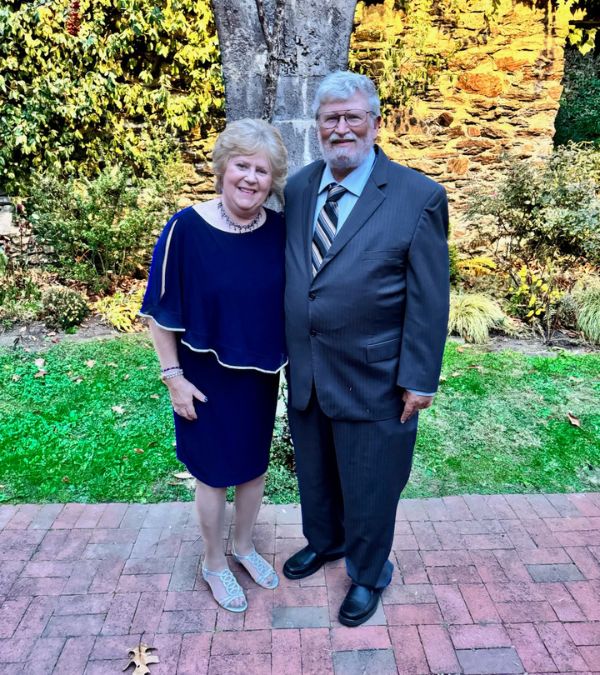
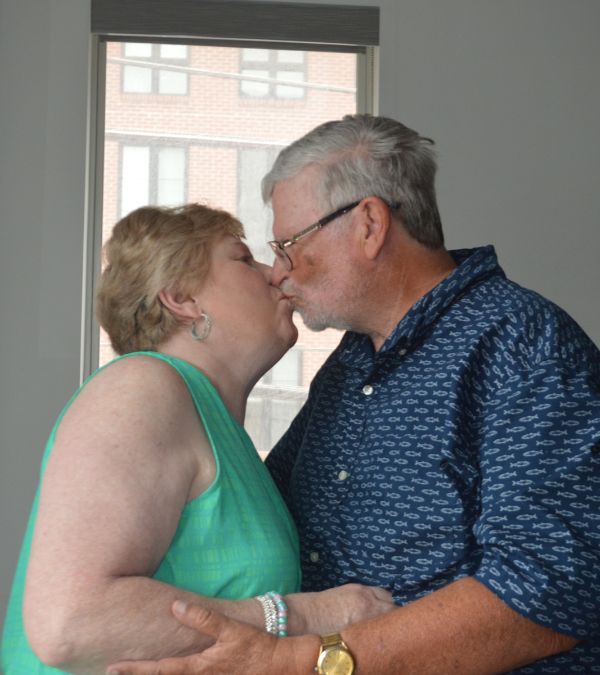
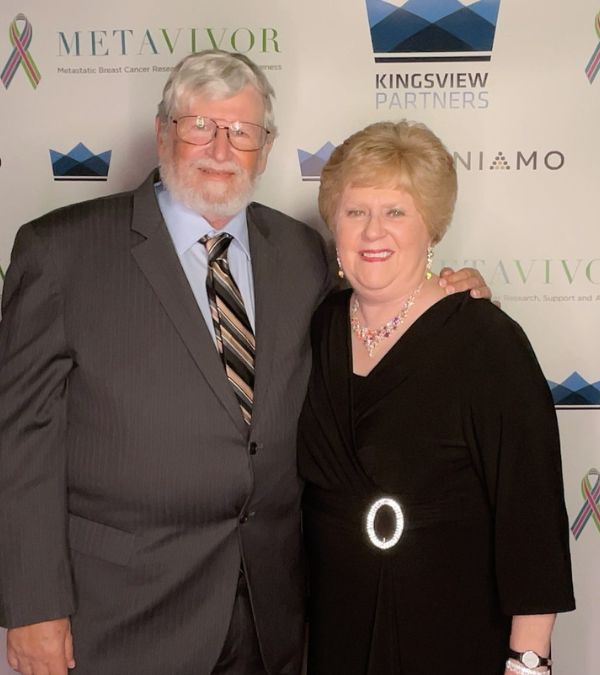
Metastatic recurrence
In 2021, Jeanmarie began to experience pain in her right leg. “I was rubbing my femur all the time,” she says. Walking on the boardwalk one day, her friend noticed she was limping.
Doctors initially dismissed it as a back issue, but Jeanmarie continued to advocate for herself. A neurosurgeon took a brief look at her scans and immediately sensed what others had missed. He told her to go to the emergency room right away.
Imaging and a bone biopsy revealed metastasis to her bones. Jeanmarie was diagnosed with metastatic breast cancer (MBC) and underwent hip replacement surgery. She also had a rod inserted into her femur. “I’m part titanium now,” she jokes.
She began treatment with palbociclib (Ibrance) and radiation. Since then, she has been on monthly fulvestrant (Faslodex) injections. “The needles are this long,” she says, holding her hands a few inches apart.
Her scans have remained clear, and she has had no evidence of disease (NED) — meaning no signs of cancer on scans — since 2021.
Watch and learn how Jeanmarie balances treatment side effects with joy and purpose.
Daily life with MBC
Daily life looks different now. Jeanmarie experiences significant fatigue. She no longer has the energy for 12-hour workdays, but she adapts. She sleeps in a recliner, paces her activities, and takes naps every day. She also has limited mobility and uses a rollator with a seat to help her walk short distances and manage long lines. “It’s not a big deal,” she says.
Jeanmarie does not regard MBC as “an automatic death sentence,” she says. Instead, she considers it a “chronic disease.” She has her current line of treatment and knows she has options when there is progression. Understanding those options is one way she advocates for herself and finds confidence and clarity.
“In reality, everyone is terminal. We’re not getting out of this life alive. So maybe my expiration date is coming sooner. Maybe not. But I’m not going to dwell on it.”
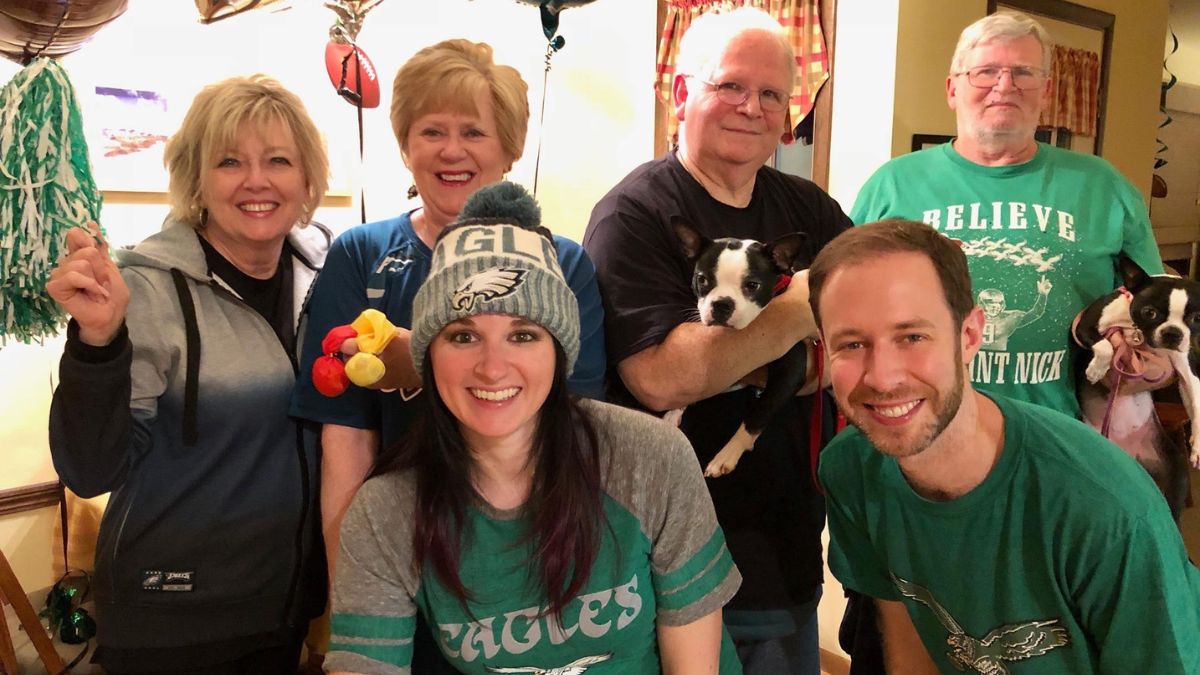
Finding humor and support
Jeanmarie has found joy, support, and humor in the various support groups she participates in. At one group she attends weekly, a participant crocheted “mini-organs” for members based on their cancer’s location in the body. One man received a crocheted testicle, another a brain and a pair of lungs. Jeanmarie was gifted breasts on a string to wear around her neck. “They were too small,” she says. “I’ll ask her to make bigger ones next time.”
“Humor is healthy,” Jeanmarie says. “So is asking for help.” When both her children became ill, she began to not feel well emotionally. She told her doctor, who recommended therapy. Jeanmarie also journals to ground herself.
She encourages others to ask for what they need and accept support. Whether it’s seeking help with luggage, requesting a handicapped parking placard, or finding emotional care, she sees it as self-empowerment. “Asking for what you need is not weakness,” she says. “That’s strength. That’s advocacy.”
Discover how Jeanmarie finds emotional strength and laughter after a diagnosis of metastatic breast cancer.
Lighting up for advocacy
Jeanmarie credits her first metastatic breast cancer conference at Living Beyond Breast Cancer (LBBC) as a turning point. “It was the first time I met others living with metastatic breast cancer,” Jeanmarie says. “LBBC encouraged me to go through advocacy training, to connect with other women, and to speak up in my community. That’s what really started it all.”
When Jeanmarie attended a local breast cancer walk in her community, she noticed the focus on survivorship and the absence of people living with metastatic disease. “I told them, 30% of the women in these pink tutus will go on to develop metastatic breast cancer. Where is their visibility?”
Since then, Jeanmarie has worked with officials in Ocean City, NJ, to raise awareness about MBC. She lobbied for proclamations naming October 13 as Metastatic Breast Cancer Awareness Day and worked with local leaders to light the city bridge in metastatic awareness colors. She also speaks at county meetings on behalf of research funding and policy issues.
“Funding for MBC is only 7% of breast cancer research,” she says. “People need to know what stage IV means and why we need resources.”
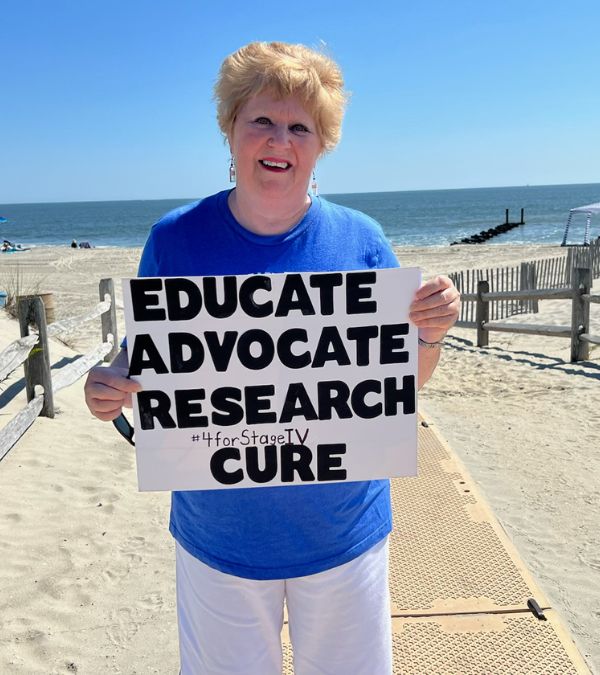
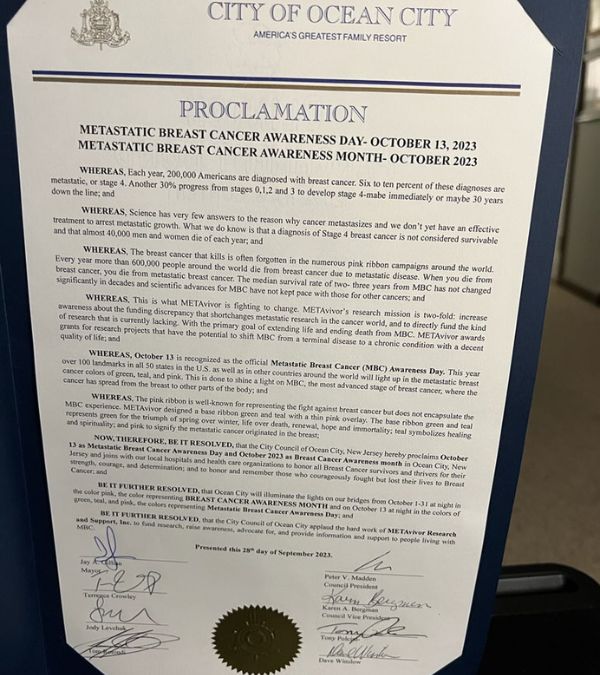
Above ground, it’s a good day: Choosing joy and gratitude
Jeanmarie insists on finding joy and purpose in daily life. She still teaches online classes part-time. She attends support groups, goes to retreats, and advocates for MBC. She is a caregiver for her children. She and her husband go out for lunch together almost every day, trying new restaurants or enjoying pizza on the boardwalk before a movie.
“I say it every morning: I’m above ground. It’s a good day. Make it a good day,” Jeanmarie says.
She knows not everyone with metastatic disease can say the same, and she doesn’t take her health for granted. “I’m blessed,” she adds. “I have a good care team, family support, and so many resources. I’m not alone.”
Learn how Jeanmarie sought help after a breaking point, and why you don’t need to wait for one.
Doctor Feelgood:
Jeanmarie's prescription for living well with metastatic breast cancer
By: Jeanmarie Mason
- Reframe the diagnosis: By seeing MBC as a chronic disease, not an automatic death sentence, I can focus on what I can do now. That helps me cope with fear.
- Stay informed about treatment options: Knowing what options are available for when there’s progression gives me confidence and eases the anxiety of wondering what’s next.
- Pace yourself: Fatigue changes everything, so I plan for rest with daily naps, use a rollator for mobility, and let go of 12-hour workdays to save energy for what matters.
- Take care of your mental health: Therapy, journaling, and humor help me manage anxiety and low moments. Seeking emotional care is part of taking care of myself.
- Talk openly with family: By being honest about my diagnosis, I keep us focused on resilience instead of fear, even when those conversations are difficult.
- Asking for help is advocacy: Whether it’s a handicapped parking placard, help with luggage, or emotional support, asking for what I need is strength, not weakness.
- Find purpose: Working for proclamations, lighting bridges in MBC colors, and raising awareness locally gives me direction and meaning.
- Make time for joy: Starting the day with “I’m above ground. It’s a good day. Make it a good day” helps me keep perspective and find happiness in small things like lunch dates and the boardwalk.
- Connect with people who get it: Support groups and LBBC events bring me into a community where I don’t have to explain what MBC means.
- Balance hope with reality: Being realistic about the disease while making the most of today helps me avoid denial without living in fear.
DISCLAIMER:
The views and opinions of our bloggers represent the views and opinions of the bloggers alone and not those of Living Beyond Breast Cancer. Also understand that Living Beyond Breast Cancer does not medically review any information or content contained on, or distributed through, its blog and therefore does not endorse the accuracy or reliability of any such information or content. Through our blog, we merely seek to give individuals creative freedom to tell their stories. It is not a substitute for professional counseling or medical advice.

